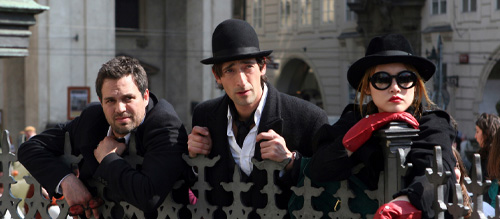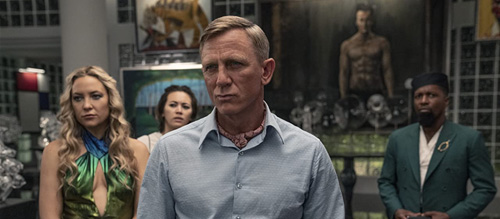Rian Johnson Movies Ranked
Rian Johnson can be best described as a postmodernist filmmaker, someone who takes established form and well-worn genre tropes and reshapes and experiments with them deftly on film.
From making low-budget short films as a student to his indie breakthrough (along with actor friend Noah Segan and cousin composer Nathan Johnson who came along for the ride in nearly all all of his movies) through directing on ‘Breaking Bad’ and more recent massive mainstream Hollywood success, Rian Johnson has always built on what came before but never followed a precisely plotted or predictable career path.
As Johnson’s film budgets have increased, so has his level of critical acclaim and number of awards nominations received. He may have played in the Star Wars toy box, might have worked lucratively with big stars like Daniel Craig and Emily Blunt, and he currently has a $450 million deal with Netflix, but his work has remained consistently original, surprising and vividly memorable.
In this edition of Ranked, we at The Film Magazine have ordered all five Rian Johnson feature films from worst to best based on critical reception, audience popularity and pop cultural impact.
Follow @thefilmagazine on Twitter.
6. The Brothers Bloom (2008)

The Brothers Bloom is Rian Johnson’s intentionally convoluted comedy caper movie.
Two conmen brothers (Mark Ruffalo and Adrian Brody) and their selectively mute accomplice (Rinko Kikuchi), following a life of small time grifts, plan their biggest heist yet involving counterfeit art. They do so just as the younger Bloom (Brody) tries to leave the life of crime behind once and for all. and one of their would-be victims (Rachel Weisz) becomes a new addition to their team.
The Brothers Bloom film relies almost entirely on the charisma of its stars (particularly Ruffalo and Weisz), and this goes a long way to smoothing over everything that doesn’t quite work. The character chemistry positively crackles and provides the nucleus for all of the extraneous plot shenanigans to revolve around.
The script is knotty and entertainingly convoluted and witty, but perhaps loses focus at times, missing where the characters are and what they’re going through in favour of throwing you off with clever twists and turns, not to mention having a kooky tone that won’t be to everyone’s taste.
If an open style of narrative storytelling that leaves hanging threads at the end doesn’t gel with you, you probably won’t get on with The Brothers Bloom. It is a unique oddball experience that allows you to think a different way about telling (or not telling) a tale, and about the power the narrator wields. If you’re happy just going along for the ride then there’s a lot of fun to be had. It’s a curiosity, but nowhere near as successful as Johnson’s films before and after.
5. Glass Onion: A Knives Out Mystery (2022)

With his second glossy murder mystery inspired by Agatha Christie, Rian Johnson takes his Southern drawling detective Benoit Blanc abroad. But this is no vacation and the Mediterranean sun offers no respite from rich people being devious and cruel to each other.
When tech billionaire Miles Bron (Edward Norton) sends out a puzzle box containing an invite for all of his closest influencer friends to stay on his private Greek island and take part in a “real” murder mystery game, investigator Benoit Blanc (Daniel Craig) finds himself unexpectedly part of proceedings and before long he is swept up in a far more elaborate and twisted plot.
Glass Onion’s main strength is that it spends more time with each of its characters and makes every effort to make them feel real, rounded and completely awful. Most of them (Janelle Monáe’s scene-stealing and sympathetic turn excluded) are so detestable you find yourself wishing Johnson had been tighter on the edit, though it is good to see Kate Hudson given a prominent role again.
Glass Onion is fun and funny in the moment, and ostentatiously clever in its plotting, but is definitely less well-formed than its predecessor and far more indulgent, bordering on pretentious in its chosen style of storytelling.

